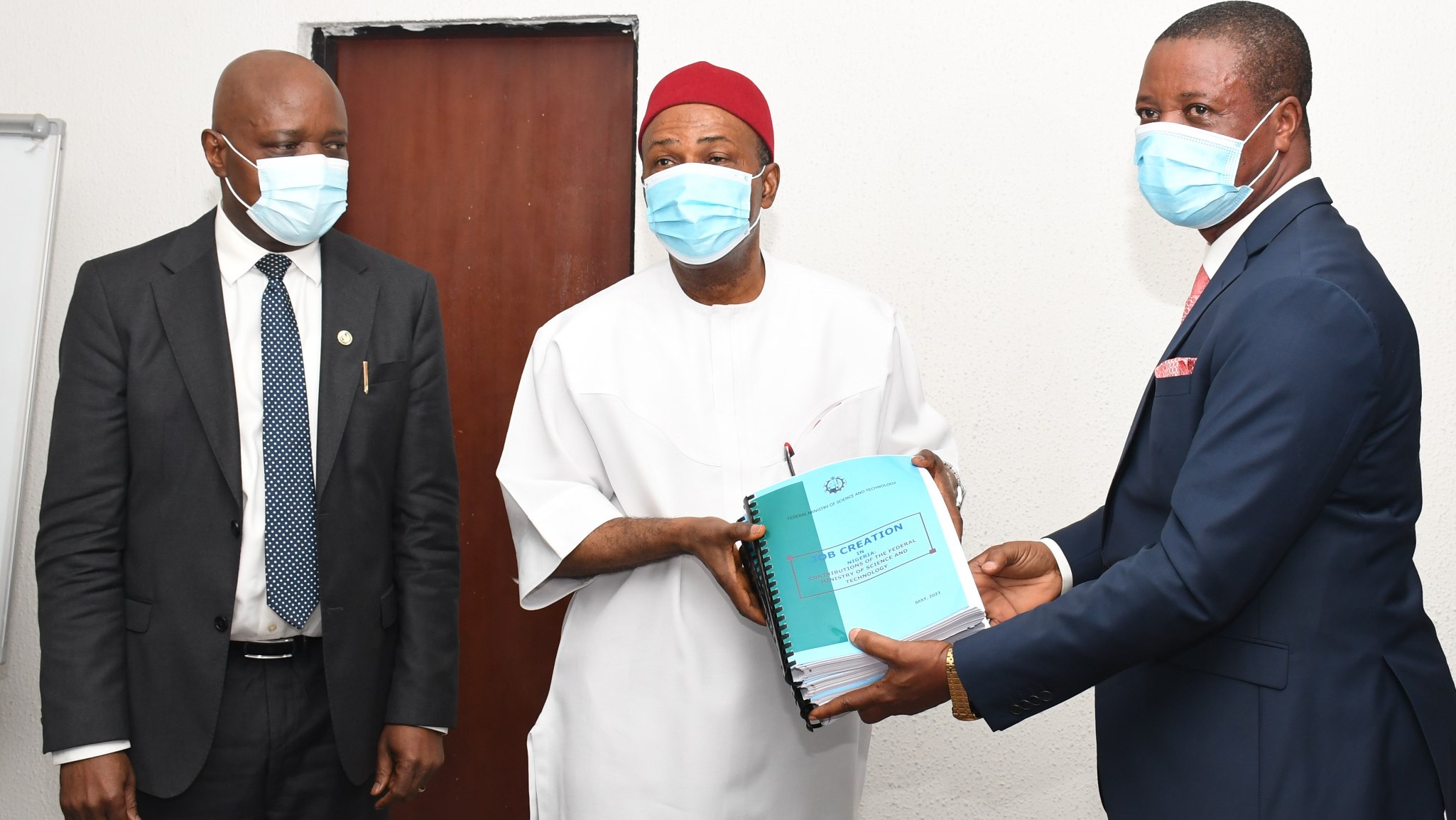Oil & Energy
‘SPDC Spilled 276 Barrels Into N’Delta Communities In April’

The Shell Petroleum Development Company of Nigeria Limited, spilled into communities in Rivers and Bayelsa States, a total of 276 barrels of crude oil in three incidents in April 2021.
The 276 barrels of crude is the cumulative volume of spill from a section of the 14-inch Okordia Rumuekpe pipeline,which transverses Bayelsa and Rivers communities, in the month under review.
Data from the oil firm’s spill incident portal indicates that two of the spills were caused by sabotage while one was traced to equipment failure.
According to Joint Investigation Visit reports on the incidents, the leaks which occurred at Ikarama community in Yenagoa, Bayelsa State on April 7th traceable to equipment failure, caused a leakage of 110 barrels into the environment.
Similarly, the leak incident on April 13th 2021, at Ihuowu in Ahoada, Rivers State attributed to sabotage by the JIV report caused a spill of 157 barrels of crude.
Also, on April 14 at Ukpeliede in Rivers, the same Okordia-Rumekpe trunkline was breached by vandals leaving a leak of nine barrels.
According to the SPDC’s spills records, oil spill response activities were ongoing at the spill sites while recovery of spilled crude would be completed later in May 2021.
SPDC also reported that it has concluded investigation in seven spill incidents from its operations across the Niger Delta, with a total spilled volume of 435.01 barrels of crude.
Of the seven leak incidents, six were caused by sabotage while one was traced to equipment failure and corrosion.
Oil & Energy
FG Woos IOCs On Energy Growth
The Federal Government has expressed optimism in attracting more investments by International Oil Companies (IOCs) into Nigeria to foster growth and sustainability in the energy sector.
This is as some IOCs, particularly Shell and TotalEnergies, had announced plans to divest some of their assets from the country.
Recall that Shell in January, 2024 had said it would sell the Shell Petroleum Development Company of Nigeria Limited (SPDC) to Renaissance.
According to the Minister of State for Petroleum Resources (Oil), Heineken Lokpobiri, increasing investments by IOCs as well as boosting crude production to enhancing Nigeria’s position as a leading player in the global energy market, are the key objectives of the Government.
Lokpobiri emphasized the Ministry’s willingness to collaborate with State Governments, particularly Bayelsa State, in advancing energy sector transformation efforts.
The Minister, who stressed the importance of cooperation in achieving shared goals said, “we are open to partnerships with Bayelsa State Government for mutual progress”.
In response to Governor Douye Diri’s appeal for Ministry intervention in restoring the Atala Oil Field belonging to Bayelsa State, the Minister assured prompt attention to the matter.
He said, “We will look into the issue promptly and ensure fairness and equity in addressing state concerns”.
Lokpobiri explained that the Bayelsa State Governor, Douyi Diri’s visit reaffirmed the commitment of both the Federal and State Government’s readiness to work together towards a sustainable, inclusive, and prosperous energy future for Nigeria.
While speaking, Governor Diri commended the Minister for his remarkable performance in revitalisng the nation’s energy sector.
Oil & Energy
Your Investment Is Safe, FG Tells Investors In Gas
The Federal Government has assured investors in the nation’s gas sector of the security and safety of their investments.
Minister of State for Petroleum Resources (Gas), Ekperikpe Ekpo, gave the assurance while hosting top officials of Shanghai Huayi Energy Chemical Company Group of China (HUAYI) and China Road and Bridge Corporation, who are strategic investors in Brass Methanol and Gas Hub Project in Bayelsa State.
The Minister in a statement stressed that Nigeria was open for investments and investors, insisting that present and prospective foreign investors have no need to entertain fear on the safety of their investment.
Describing the Brass project as one critical project of the President Bola Tinubu-led administration, Ekpo said.
“The Federal Government is committed to developing Nigeria’s gas reserves through projects such as the Brass Methanol project, which presents an opportunity for the diversification of Nigeria’s economy.
“It is for this and other reasons that the project has been accorded the significant concessions (or support) that it enjoys from the government.
“Let me, therefore, assure you of the strong commitment of our government to the security and safety of yours and other investments as we have continually done for similar Chinese investments in Nigeria through the years”, he added.
Ekpo further tasked investors and contractors working on the project to double their efforts, saying, “I want to see this project running for the good of Nigeria and its investors”.
Earlier in his speech, Leader of the Chinese delegation, Mr Zheng Bi Jun, said the visit to the country was to carry out feasibility studies for investments in methanol projects.
On his part, the Managing Director of Brass Fertiliser and Petrochemical Ltd, Mr Ben Okoye, expressed optimism in partnering with genuine investors on the project.
Oil & Energy
Oil Prices Record Second Monthly Gain
Crude oil prices recently logged their second monthly gain in a row as OPEC+ extended their supply curb deal until the end of Q2 2024.
The gains have been considerable, with WTI adding about $7 per barrel over the month of February.
Yet a lot of analysts remain bearish about the commodity’s prospects. In fact, they believe that there is enough oil supply globally to keep Brent around $81 this year and WTI at some $76.50, according to a Reuters poll.
Yet, like last year in U.S. shale showed, there is always the possibility of a major surprise.
According to the respondents in that poll, what’s keeping prices tame is, first, the fact that the Red Sea crisis has not yet affected oil shipments in the region, thanks to alternative routes.
The second reason cited by the analysts is OPEC+ spare capacity, which has increased, thanks to the cuts.
“Spare capacity has reached a multi-year high, which will keep overall market sentiment under pressure over the coming months”, senior analyst, Florian Grunberger, told Reuters.
The perception of ample spare capacity is definitely one factor keeping traders and analysts bearish as they assume this capacity would be put into operation as soon as the market needs it. This may well be an incorrect assumption.
Saudi Arabia and OPEC have given multiple signs that they would only release more production if prices are to their liking, and if cuts are getting extended, then current prices are not to OPEC’s liking yet.
There is more, too. The Saudis, which are cutting the most and have the greatest spare capacity at around 3 million barrels daily right now, are acutely aware that the moment they release additional supply, prices will plunge.
Therefore, the chance of Saudi cuts being reversed anytime soon is pretty slim.
Then there is the U.S. oil production factor. Last year, analysts expected modest output additions from the shale patch because the rig count remained consistently lower than what it was during the strongest shale boom years.
That assumption proved wrong as drillers made substantial gains in well productivity that pushed total production to yet another record.
Perhaps a bit oddly, analysts are once again making a bold assumption for this year: that the productivity gains will continue at the same rate this year as well.
The Energy Information Administration disagrees. In its latest Short-Term Energy Outlook, the authority estimated that U.S. oil output had reached a record high of 13.3 million barrels daily that in January fell to 12.6 million bpd due to harsh winter weather.
For the rest of the year, however, the EIA has forecast a production level remaining around the December record, which will only be broken in February 2025.
Oil demand, meanwhile, will be growing. Wood Mackenzie recently predicted 2024 demand growth at 1.9 million barrels daily.
OPEC sees this year’s demand growth at 2.25 million barrels daily. The IEA is, as usual, the most modest in its expectations, seeing 2024 demand for oil grow by 1.2 million bpd.
With OPEC+ keeping a lid on production and U.S. production remaining largely flat on 2023, if the EIA is correct, a tightening of the supply situation is only a matter of time. Indeed, some are predicting that already.
Natural resource-focused investors Goehring and Rozencwajg recently released their latest market outlook, in which they warned that the oil market may already be in a structural deficit, to manifest later this year.
They also noted a change in the methodology that the EIA uses to estimate oil production, which may well have led to a serious overestimation of production growth.
The discrepancy between actual and reported production, Goehring and Rozencwajg said, could be so significant that the EIA may be estimating growth where there’s a production decline.
So, on the one hand, some pretty important assumptions are being made about demand, namely, that it will grow more slowly this year than it did last year.
This assumption is based on another one, by the way, and this is the assumption that EV sales will rise as strongly as they did last year, when they failed to make a dent in oil demand growth, and kill some oil demand.
On the other hand, there is the assumption that U.S. drillers will keep drilling like they did last year. What would motivate such a development is unclear, besides the expectation that Europe will take in even more U.S. crude this year than it already is.
This is a much safer assumption than the one about demand, by the way. And yet, there are indications from the U.S. oil industry that there will be no pumping at will this year. There will be more production discipline.
Predicting oil prices accurately, even over the shortest of periods, is as safe as flipping a coin. With the number of variables at play at any moment, accurate predictions are usually little more than a fluke, especially when perceptions play such an outsized role in price movements.
One thing is for sure, though. There may be surprises this year in oil.
lrina Slav
Slav writes for Oilprice.com.
-
Business20 hours ago
Agency Partners Foreign Varsity On Climate-Smart Agriculture Advancement
-

 Nation21 hours ago
Nation21 hours agoNUJ backs proposed strike by Lagos-owned media workers
-

 Niger Delta19 hours ago
Niger Delta19 hours agoFouchee Celebrates Asari’s Recognition
-
Niger Delta20 hours ago
NDDC Boss Thanks God For Transformation … Promises More Infrastructural Projects
-
Business20 hours ago
NACCIMA Rep Urges Farmers To Exploit Hybrid Oil Palm Seedlings
-
News21 hours ago
4 Professors, 2 SANs Unveil Book On FUBARAISM …Commend Rivers Gov’s Dev Strides
-

 Politics18 hours ago
Politics18 hours agoNASS Sets Date For 2025 Budget Passage
-

 News20 hours ago
News20 hours agoNothing’ll Stop Governance In Rivers, Fubara Assures …Says We Won’t Allow Anyone Take State For A Ride

